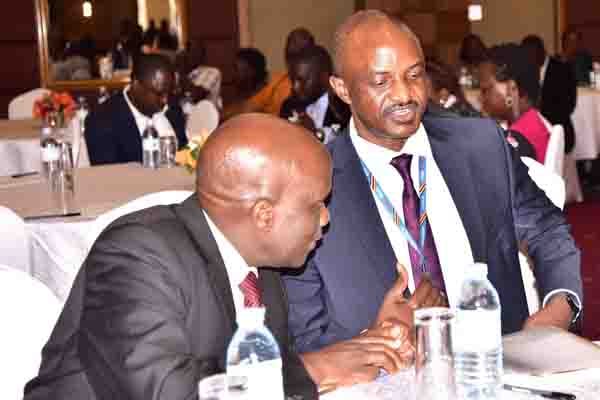Address PDM implementation challenges

Fabiano Okware
In February, President Museveni officially launched the Parish Development Model (PDM), saying it was aimed at helping people from the parish level to increase their household incomes and join the money economy.
According to Mr Museveni, the focus is on transforming the population from the culture of “working for only the stomach to working for both the stomach and the pocket. In his opinion, Shs100 million would be allocated to each of the 10,694 parishes countrywide annually, so that the desired output is achieved.
However, there appears to have been a mismatch between the President’s alignment of vision, mission, strategic objectives and core values in the running of his enterprise–Uganda. He did not appropriately use the fundamental five sequential functions of management; planning, organising, staffing, leading and controlling! Remember, planning and controlling are intertwined! You can not plan and fail to control! Neither can you control without a plan!
Daily Monitor on September 13 and the New Vision on September 21, reported on the misappropriation of the PDM funds. Sources in the Finance ministry noted that an audit carried out indicated that the money sent to the districts vanished in the hands of the staff, while other funds were paid to ghost Saccos.
The above clearly indicates that the PDM was conceptualised or designed by top management, in this case, the Executive without the involvement of the grassroots people (omuntuwawansi). They had no idea of the concept of the project which was imposed on them.
Interestingly, even some of the government technocrats had descending views! The Ministry of Finance technocrats were sceptical and hence smart in the proposed release of the PDM money. The Deputy Governor of Bank of Uganda was concerned about inflation. In my view, this was all meant to bring sanity to the economy by not having too much money against low production.
The proposed approach by the technocrats that only the poor would benefit from the PDM, and each family be given Shs1 million was quite absurd! Imagine a poor family, which has not even handled Shs10,000, all of a sudden gets a million! Such families do not even have the basic minimum for a standard of living!
My argument is not to despise and make them perpetually poor, but rather to consider an appropriate approach and guidance needed to be provided. Within such communities, there are some who have been astute and used indigenous knowledge to come out of such cocoons. There is evidence of such people who have been profiled as successful in the locality. The government could identify and use such persons to provide leadership and guidance in identifying income-generating projects for poor families.
Projects are short-term interventions which can expand to programmes for institutional sustainability. They can be supply-driven or demand-driven. Ideally, projects that are meant to benefit and uplift the common/poor people should take a bottom-up approach or be demand-driven because it will take care of their needs and during the implementation process, they are part of the system and, therefore, take ownership and accountability!
In my view, the channelling of the PDM funds through government technocrats, is a recipe for bureaucracy leading to the PDM implementation challenges already at play. Former Vice President Bukenya warns of mafias in government able who frustrate would-be-good projects such as the PDM.
Dr Fabiano Okware is an independent business and management consultant




